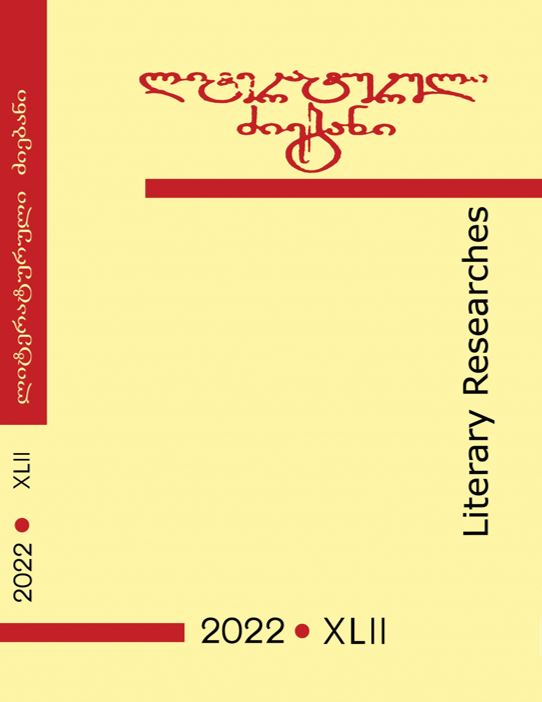გამოქვეყნებული 2022-04-30
საკვანძო სიტყვები
- ეგზისტენციალური კრიზისი,
- ქალთა პროზა,
- ლეილა ბეროშვილი,
- თავისუფლების პრობლემა,
- სიყვარული
როგორ უნდა ციტირება
ანოტაცია
The 80s of the 20th century is the period distinguished by many innovations for Georgian literature, which have not yet been systematically evaluated in our literary studies. It was at that time when the whole generation of young women writers appeared in Georgian literature: Keti Nizharadze, Ana Mkheidze, Naira Gelashvili, Maka Jokhadze, Leila Beroshvili...
Distinguished name in this generation is Leila Beroshvili while her fiction prose still remains in the shade. Existential problematic characterizes her prose, just like the Georgian short stories of the 70s and especially of the 80s in general: life of an ordinary person, sharp feeling of loneliness and of being unsheltered, harshness of the human world and absence of compassion, activation of death topic and etc. Special attention must be paid to the short
story Mariam. It is a text created by collage technique. The whole short story is the alteration of stories happening in the present or far or near past. Its main problematic is the existential crisis of a woman living alone and of a single mother, the main reason of which is the lack of love. Mariam is free and at the same time she is “cursed with freedom” (Jean Paul Sartre). Her role in the society she is living in is passive. The lonely woman fails to bear the burden of freedom.
Another existential problem cutting through the woman’s life is loneliness. Faith is not a solution for Mariam’s loneliness, while it is recognized as one of the main solutions by existentialists; the woman finds another shelter, which is love, however, her happy love is temporary so the character is left in an existential crisis.
The article will discuss and research the aforementioned accents.

